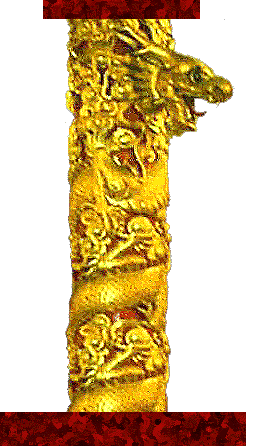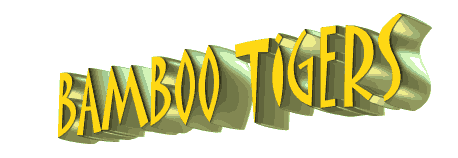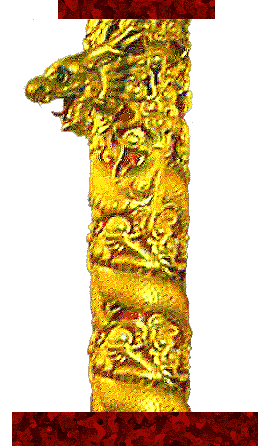| |
Public interest in the trials, and the much publicized convictions in The City's courts of Stuart and Melvin, inspired the defense teams for Egg and Tom to request a change of venue so that both trials might be conducted in a less prejudicial atmosphere. In the beginning, Levine had wanted a joint trial for Melvin, Egg and Tom as soon as Stuart's trial was finished.
He knew that Stuart could not have been tried with the others because he had confessed and implicated them all. It is a doctrine of law that when two defendants are tried together, and one has confessed and implicated the other, what he says about the co-defendant constitutes hearsay. This would have required the editing of Stuart's confession to remove his references to the others. A jury would, justifiably, have laughed it out of court and destroyed all hope of convicting the perpetrators.
Separate preliminary hearings were held for all, and Levine then managed to consolidate Melvin, Egg and Tom in Superior Court. However, defense teams petitioned for severance, or separate trials, and won, just as they later won the request for a move from San Francisco to other locales for the next two trials.
The three choices offered were Los Angeles, San Bernardino and Fresno. The defense attorneys naturally opted for Los Angeles. It was the most liberal of the three counties and, as the only one with an appreciable Asian community, was less likely to be prejudiced against Chinese boys on trial. Levine, having heard that San Bernardino was highly conservative, cast a solitary vote for that Southern California city. There, he could expect a good Golden Dragon jury (from the prosecution's point of view).
The argument went to Judge Calcagno for a decision. The wise magistrate made a choice worthy of biblical King Solomon: he elected for the county nobody mentioned--Fresno.
Levine and company dashed off to the largest city (population 218,200) in the San Joaquin Valley, one of the nation's richest agricultural communities, whose wealth centers not alone around the cotton boll, but also hangs from the grapevine and the branches of the fig tree. Fresno produces more gobblers than anywhere else in the country, but no turkeys showed up on the jury in the Peter Ng trial, which went into pre-trial proceedings on January 8, 1979. "MY kind of jury," said Levine, "very solid, very conservative."
Fresno, according to the terms of change of venue, had no obligation to provide anything other than a court and a judge. The San Francisco Police Department was required to supply everything else--transportation of witnesses, housing, subsistence allowances, etc.--a heavy demand considering the exceedingly low budget allotted the Golden Dragon trials, especially when on the road. There were envious references to the millions of dollars spent on trying the Juan Corona and other major cases. The Golden Dragon trials, for all the dramatic impact the massacre had made on the world press, proved to be the stepchild of the California court system.
Nor did the budget make allowances for sophisticated San Francisco palates; no world-class chefs were sent with the group on tour. In Fresno, generally a city of chuck-wagon fare, the prosecution crew was hard put to find a place to eat. They went mostly to Basque and Armenian restaurants, of which there were quite a few. Ed Rudloff suffered least; wherever he went, he ate chicken, ubiquitous on Fresno's menus. The local turkeys were undoubtedly bred for roasting at Thanksgiving and Christmas, certainly not for the preparation of such Frenchified delicacies as Ballottine de Dinde â la Regence.
Culinary shortcomings notwithstanding, Fresno played the role of Golden Dragon host superbly. Peter "the-Hundred-Year-Egg" Ng was convicted on all charges in a trice--of multiple murders in the first degree and of 11 assaults with a deadly weapon.
The defense, at one point, attempted to make a case for the substitution of Dana Yu as a shooter instead of Egg. It didn't work. Egg stood nearly 5-foot-9; Dana, like his twin, Tom, leveled off just short of 5-foot-3.
Of great help to the prosecution was the testimony of Michael "Hotdog" Louie, who bore a felicitous moniker in a town where his fast-food namesake turned on many a spit. As he had demonstrated in the Lincoln Louie case and on other occasions, once he had made up his mind to be a witness, he was, in Levine's estimation, "damned effective."
He sat in court and freely admitted his involvement in the gangs. He allowed as how he had sometimes accepted bribes. He claimed to be no stranger to extortion and sundry other more heinous crimes. Levine asked if he could identify the shooter with the shotgun and the pistol, who had dealt death to innocents on the upper level that night at the Golden Dragon, under cover of a stocking mask.
Hotdog lifted himself from the witness chair with the loose-limbed grace of a Fresno cowboy and stepped purposefully off the stand. He swung along slowly toward Peter Ng.
The eternal survivor, John McKenna's "doomsday kid," the accidental killer of Hawaii-born Kit Mun Louie, looked "the Hundred-Year Egg" straight in the face, then turned toward the jury, and with the casual pointing of a finger that might as well have been a gun, said distinctly, in a style as understated as John Wayne's: "This gentleman right here."
The defense went wild. William J.O. Holmes and Robert Courshon, Egg's attorneys-in-tandem, were up and down and all over the place in cross-examination. But the more bad things Hotdog admitted about himself, the more credibility he gained with the jury.
Stuart Lin, Melvin Yu, Tony Szeto, Peter Ng--bamboo tigers bearded, one and all. There remained but Tom Yu.
| |
|









